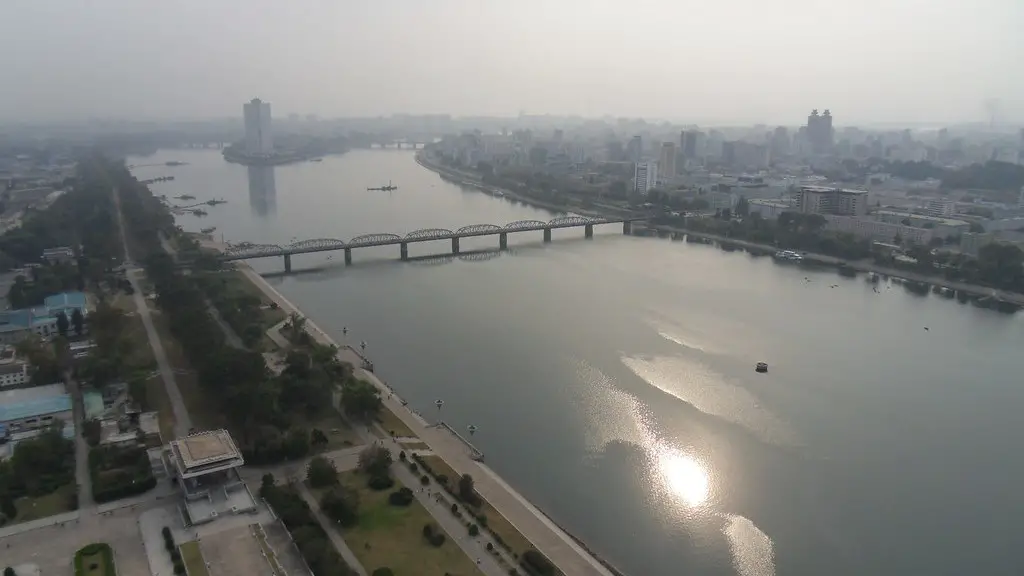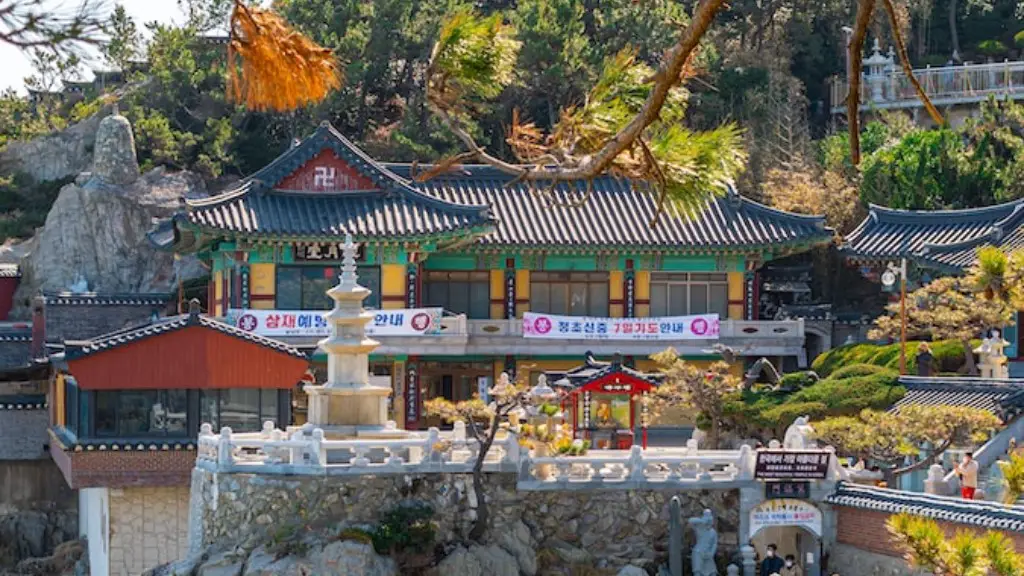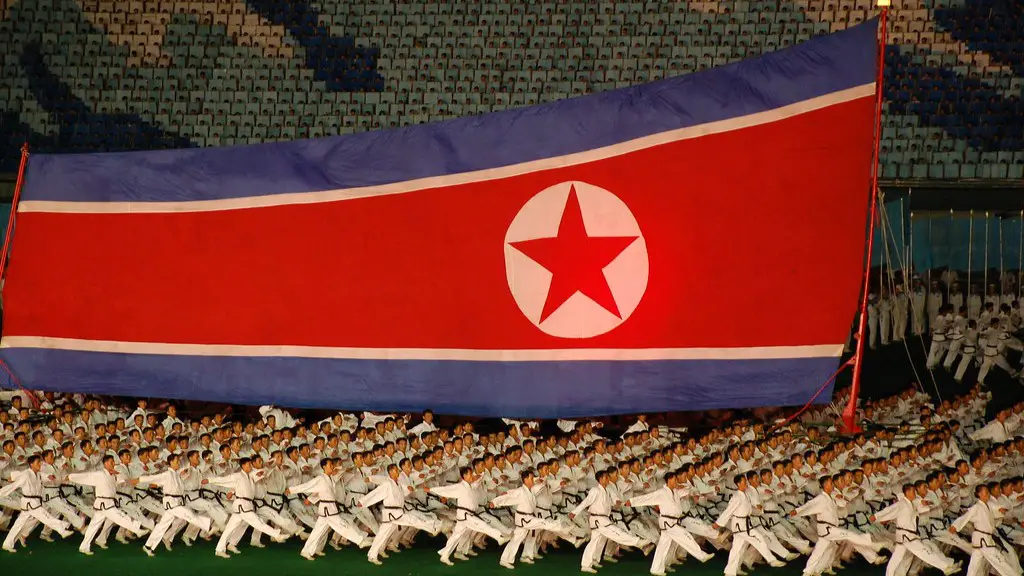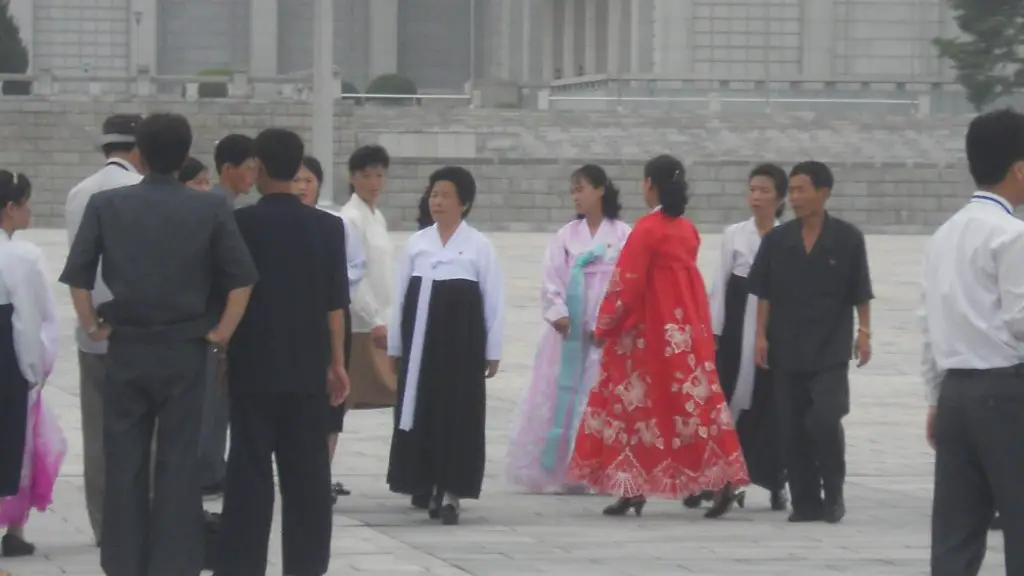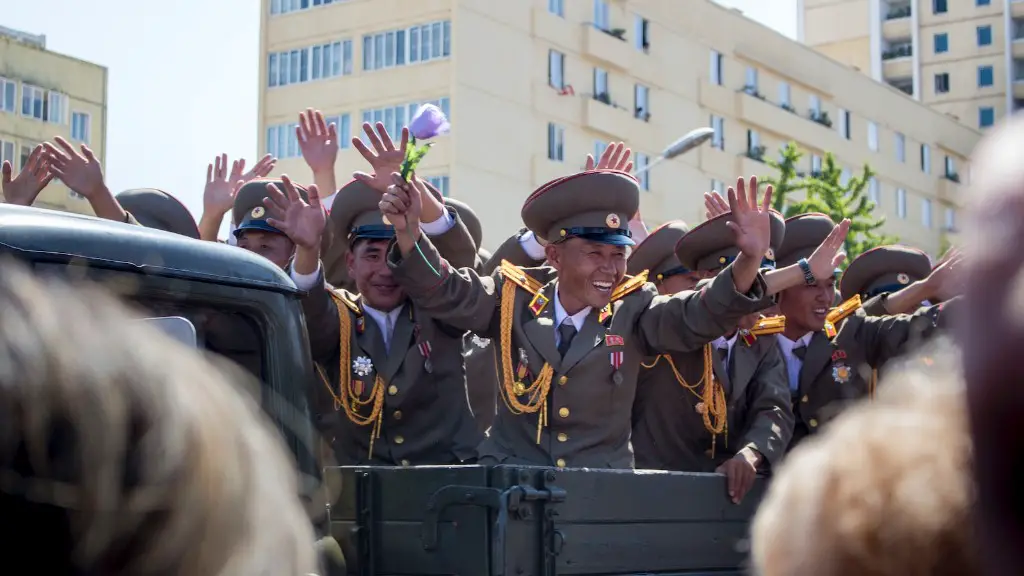North Korea is a controversial country whose government and political system have been a source of great debate and discussion in recent times. To better understand the type of government and its structure in North Korea, we must first look to historical and modern developments. North Korea was founded in 1948 as a communist state and grew in popularity strongly during the Cold War due to its militant nationalism, built upon the North Korean Communist Revolution. This Communist government is believed to be seen by many as a de-facto dictatorship and military state.
The government of North Korea is a single-party communist state, as defined by the 2012 North Korean Constitution. The constitution dictates that North Korea should be governed as a “workers’ party of North Korea”. As such, the party — the Workers’ Party of Korea (WPK) — and its leader have broad control over the government and the provision of essential services, including the supply of food and medical assistance.
North Korea’s government is headed by the Chairman of the State Affairs Commission — the highest state authority. The current Chairman — Kim Jong-un — was elected to the position in 2012, and is the third leader of the country since its establishment. Kim enjoys extensive authority within North Korea, and is even seen as a ‘divine’ figure by some of the population.
The WPK is the only legal political party in North Korea, and all citizens are forced to register when they reach the age of 17. This registration process serves as a means of further exercising control over the country’s population. The party is organized as a communist party, but features some elements of dynastic politics — a feature seen in few, if any, communist countries. This dynastic politics is rooted in the state’s founder, Kim Il-sung, and his post-mortem promotion to the title of Eternal President of the country.
The government of North Korea is highly authoritarian, with no real checks and balances in place to limit the power of the regime. This is exemplified by the fact that the party — not the general public — is in charge of regular and local elections. There is also no freedom of speech or press in North Korea, with the regime exercising control over the media through a heavily censored state media outlet.
Opposition to the government is strictly punished and any form of dissent is punishable by imprisonment, torture and in some cases death. Furthermore, North Korea maintains a massive system of ‘gulags’ — prison camps for political dissidents. Estimates suggest that up to 120,000 individuals are currently held in such camps.
In summary, North Korea is a de-facto one-party communist state which exercises an authoritarian grip on its population. The country enjoys virtually no real freedoms of expression and dissent is heavily punished. Such a system is effective at maintaining the power of the ruling party, but makes it impossible to have any real political participation or debate on important issues.
Economic System
North Korea’s economy is highly centralized and state-run, with only limited opportunities for private ownership. The private sector is mainly restricted to small-scale agriculture and small-scale enterprises. At the same time, there is a limited market economy — based around the two major cities — which is notably more dynamic than the public sector.
Much of North Korea’s economy is controlled by the military, which is centered around weapons manufacturing, export and import of food, and other elements such as trade in minerals and rare metals. In addition, the military is believed to be involved in the production and distribution of drugs, counterfeiting and other criminal activities.
Due to international sanctions, economic growth has been severely constrained since the early 2000s, leading to high levels of underdevelopment and poverty within the country. Estimates suggest that the majority of North Korea’s population lives on less than $2 a day. Furthermore, the country’s economy is heavily reliant on foreign aid, especially from South Korea and China.
Overall, North Korea’s economic system is highly centralized and dominated by the state. Despite a limited market economy, it is still largely isolated from world markets and highly dependent on foreign aid.
Cultural Norms
North Korea is a deeply conservative and highly authoritarian state, which has a strong influence on local culture and societal norms. The country is officially atheist, thus an emphasis is instead put on traditional Confucian values such as loyalty, respect and obedience.
The country is also heavily divided between two social classes — the party elite and the general population. This class divide is manifest in many aspects of life, from access to food, education and basic services, to access to luxury goods and the ability to travel abroad.
Gender roles are also highly traditional in North Korea, with males dominating the public sphere and women often relegated to the household. Divorce is discouraged and largely stigmatized, though not illegal.
Censorship and propaganda are also pervasive in North Korea. The state is quick to suppress any kind of dissent or criticism of the government, with those found guilty of such acts often facing imprisonment in politically re-education camps.
In short, North Korea is very repressive with regards to cultural norms. The country is militantly atheist, emphasizes traditional Confucian values, and places great importance on absolute obedience to the state.
Human Rights Issues
The human rights situation in North Korea is highly worrying and has been widely criticized by the international community. The government is accused of serious human rights abuses, with allegations of extrajudicial executions, arbitrary arrests, torture, and forced labor.
Furthermore, the country lacks a free and independent media, has extremely limited political freedoms, and operates a system of secret prisons and labor camps. Women in particular, have limited rights and face discrimination on many levels.
The situation is further exacerbated by the extreme isolation of the country — North Koreans are denied access to information from the outside world and often suffer from the lack of basic goods and services. In particular, the healthcare system is known to be inadequate, with malnutrition and diseases running rampant.
Likewise, the educational system is reportedly inadequate, with children often being denied access to basic schooling due to poverty. Discrimination against religious and ethnic minorities is also reportedly widespread in North Korea.
In conclusion, North Korea significantly lags behind the international human rights standards. Allegations of serious human rights abuses are widespread, and the situation is further worsened by poverty, malnutrition and lack of access to essential services and goods.
Conclusion
North Korea is a highly authoritarian, one-party communist state, with a tightly controlled economy and media. Cultural norms are highly traditional and repressive, while the human rights situation is tragic and cause of great concern. International isolation and economic sanctions compound the already difficult situation in the country, and make it hard to see a way out of the current crisis.
